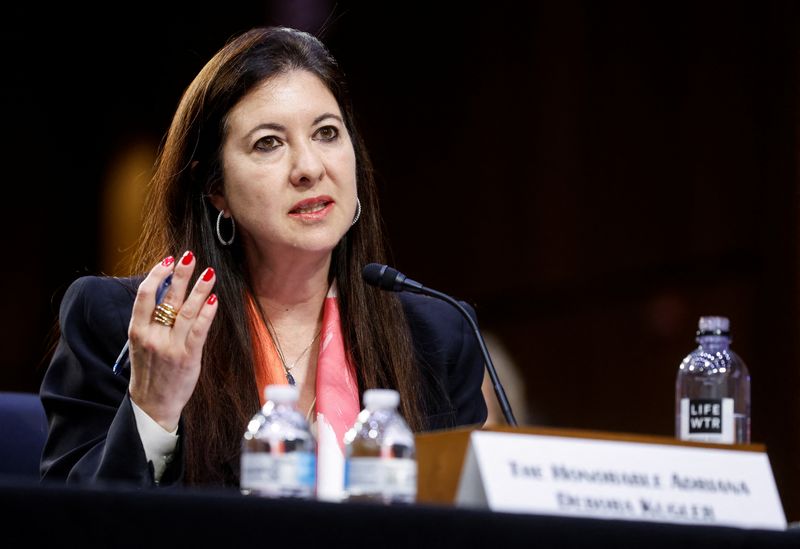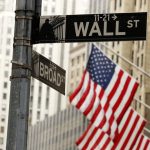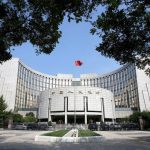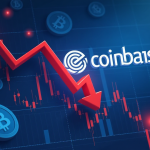
By Michael S. Derby
(Reuters) – Federal Reserve Governor Adriana Kugler said on Friday the U.S. central bank is uncertain about what the economy will deliver in 2025 and will let upcoming economic data drive the course of monetary policy.
In light of Fed forecasts last month for fewer interest rate cuts in 2025, “there is a view that we can take our time, to slow down” and be more “gradual” while watching the data to see if sticky inflation pressures start to ease again, Kugler said in a CNBC interview.
If the resilient job market starts to lose steam, however, “we would be ready to act in a different direction” with monetary policy, she said. “We’re always responding” to what happens in the economy “and seeing what is happening in front of us,” the official added.
In the interview, the central banker said the economy is in a good place and while the job market has cooled, it remains resilient with a still historically low unemployment rate.
Asked how she expects the policies of the incoming Trump administration to affect the economy, Kugler noted there are many moving pieces, making it hard to say how things will play out.
Kugler’s comments on TV were her first public remarks since the central bank’s most recent policy meeting, and were among the first made by a central banker as 2025 begins.
At the Fed’s mid-December Federal Open Market Committee meeting, officials lowered by a quarter percentage point their interest rate target range to between 4.25% and 4.5%. At the meeting, policymakers pulled back on rate cut estimates in 2025 while raising projections of where inflation would stand.
For some, the change in outlook called into question why the Fed had cut rates at all given how long officials expect it will be before they hit their 2% inflation target.
The new year brings considerable uncertainty for the Fed with the return of Donald Trump to the presidency. The president-elect campaigned on a platform of heavy trade tariffs and deportations, which most economists believe is a recipe to reignite inflation. But officials have been cautious in reacting to the election outcome given a lack of details on what will be implemented and how.
“There is a wide set of scenarios and I think everybody’s considering that wide set of scenarios,” Kugler said.
Earlier on Friday, Richmond Fed President Thomas Barkin said that since tariffs could be implemented in many ways, “uncertainty should come down as policies are finalized, although it’s easy to imagine an extended period of back and forth” as elected leaders hash out the policy agenda.
“I see more risk on the inflation side,” Barkin added, while noting the Fed is “well-positioned” on the policy front for whatever the economy sends its way.
She signaled a reluctance to further ease policy. “I put myself in the camp of wanting to stay restrictive for longer as opposed to the other school, which would be ‘we’re done, so why not take rates down to neutral,’” she said.






